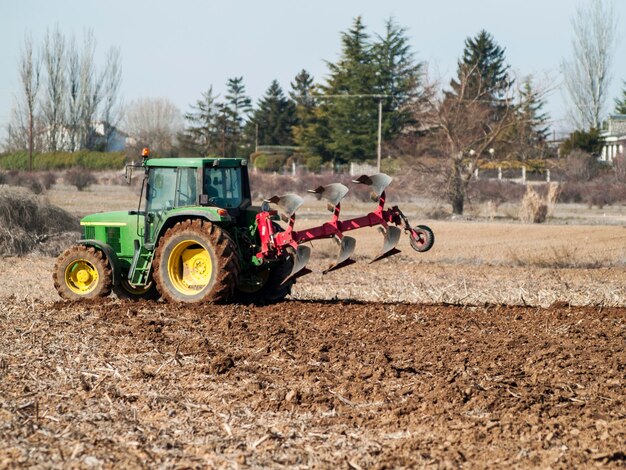Sustainable farming practices are becoming increasingly critical in South Africa as farmers seek to balance productivity with environmental stewardship. One of the key components of sustainable agriculture is the use of modern, eco-friendly farming equipment. These tools not only improve efficiency but also play a pivotal role in enhancing crop and soil health. This article explores the profound impact of sustainable farming equipment and how it can help farmers achieve long-term agricultural success.
Improving Soil Health
Healthy soil is the foundation of successful farming, and sustainable equipment is designed to preserve and improve this vital resource.
1. Reduced Soil Compaction
Traditional heavy machinery often compacts soil, limiting its ability to retain water and nutrients. Sustainable equipment, such as lightweight tractors and machines with wider tires, minimizes soil compaction, maintaining its structure and permeability. This ensures that roots grow freely and absorb nutrients effectively.
2. Conservation Tillage
Conservation tillage equipment, such as no-till planters and strip-till machines, reduces the need for deep plowing. These tools leave crop residues on the soil surface, protecting it from erosion, retaining moisture, and enhancing organic matter content. This practice also promotes beneficial microbial activity, essential for nutrient cycling.
3. Precision Application of Inputs
Modern sprayers and spreaders equipped with GPS and variable rate technology allow for precise application of fertilizers, pesticides, and herbicides. By targeting only the areas that need treatment, farmers prevent overuse, which can degrade soil quality over time, and reduce chemical runoff into surrounding ecosystems.
Enhancing Crop Health
Healthy soil supports robust crops, but sustainable farming equipment further contributes to crop health by improving planting, nurturing, and harvesting practices.
1. Optimal Planting Practices
Seed drills and precision planters ensure uniform seed placement and depth, leading to consistent germination and growth. This reduces competition for resources among plants and increases overall yield potential.
2. Efficient Water Management
Irrigation systems like drip irrigation and center-pivot sprinklers are designed to deliver water directly to plant roots, reducing wastage and preventing waterlogging. Proper hydration at critical growth stages enhances crop resilience to stress and diseases.
3. Integrated Pest and Weed Management
Innovative equipment such as robotic weeders and drone sprayers helps control weeds and pests with minimal chemical use. These tools ensure crops are protected without harming beneficial organisms or contaminating the environment.
4. Enhanced Harvesting Techniques
Modern harvesters are designed to minimize crop damage and loss during harvesting. They also separate grains and residues efficiently, allowing farmers to utilize leftovers as organic matter for soil improvement.
Economic and Environmental Benefits
Sustainable farming equipment not only boosts crop and soil health but also provides significant economic and environmental advantages.
1. Cost Savings
By reducing input wastage and improving efficiency, farmers save on seeds, fertilizers, and pesticides. Better yields and quality also lead to higher market value for crops.
2. Environmental Preservation
Reduced chemical use and soil erosion contribute to cleaner water sources and healthier ecosystems. Practices like conservation tillage and precision farming significantly lower the carbon footprint of agricultural operations.
3. Long-Term Productivity
Investing in soil health ensures sustainable crop production for future generations. Healthy soils are more resilient to climate change and extreme weather conditions, securing food supply in the long run.
Adopting Sustainable Equipment in South Africa
South African farmers are uniquely positioned to benefit from sustainable farming equipment, given the country’s variable climate and soil conditions. Accessing such equipment may require initial investment, but government grants, subsidies, and cooperative purchasing can make it more affordable. Farmers should also seek training on how to operate these tools effectively to maximize their benefits.
Sustainable farming equipment is a game-changer for modern agriculture. By promoting healthier soil and crops, it supports both immediate profitability and long-term sustainability. For South African farmers, adopting such tools is not only an investment in their livelihoods but also a commitment to preserving the environment for future generations.
Join 'Farmers Mag' WhatsApp Channel
Get the latest Farming news and tips delivered straight to your WhatsApp
CLICK HERE TO JOIN






